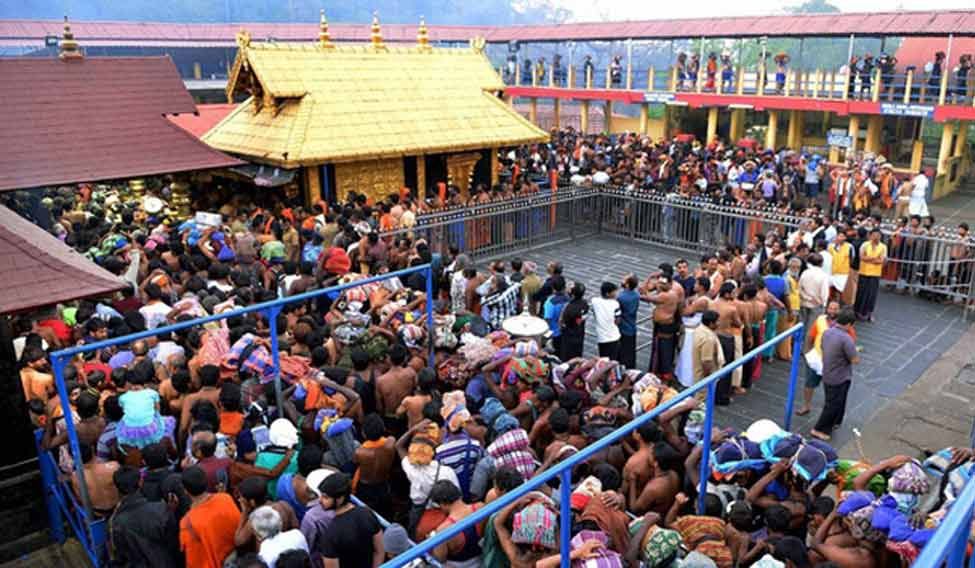SC asks petitioners to suggest legal questions for the Bench to answer
Indicating that it will refer the Sabarimala temple entry restriction on women of a certain age to a Constitution Bench, the Supreme Court on Monday said the main issue to be decided was whether the multitude of worshippers of Lord Ayyappa visiting the shrine form a separate religious “denomination”, and if so, should their privilege to manage their religious affairs yield to the fundamental right of women to practice religion freely.
On Monday, a three-judge Bench of Justices Dipak Misra, R. Banumathi, and Ashok Bhushan reserved its judgment on the question of referring a batch of petitions challenging the temple’s restriction to a Constitution Bench of five judges of the Supreme Court.
The court asked all the parties in the case, from various petitioners, women’s organisations, Ayyappa groups, the State of Kerala and the Travancore Devaswom Board (TDB) to suggest legal questions which the three-judge Bench would formally refer to the Constitution Bench to answer.
A 1991 Kerala High Court judgment supported the restriction imposed on women devotees. It had found that the restriction was in place since time immemorial and not discriminatory to the Constitution. The Bench said the High Court judgment was no bar on a Constitution Bench of the Supreme Court from deciding the issue afresh. “We are not bothered by the principle of res judicata,” Justice Misra responded to senior advocate K.K. Venugopal, who represents the TDB.
The Pandalam royal family and several Ayyappa groups had contended that the deity was not “interested” in women devotees of the restricted age bracket visiting him, Justice Misra reacted that such arguments merely based on conjecture without any constitutional basis cannot be entertained in the Supreme Court.
“The deity’s interest is a hypothesis which we do not want to comment on now. It is not within our domain. God is everywhere, in every atom,” Justice Misra remarked.
“But the deity is a perpetual minor, the case cannot be decided without considering his interest,” advocate V.K. Biju, appearing for Rahul Easwar, president of the Ayyappa Dharma Sena, argued.
Justice Misra orally observed that the primary questions which the larger Bench would have to answer was whether the restriction was a “permissible practice”, whether the Ayyappa devotees visiting Sabarimala form a religious denomination, who is the competent authority to decide on whether the restriction comes within the ambit of “custom” and, whether such a “custom” comes under the constitutional principles.
Senior advocate Jaideep Gupta, counsel for the State government, said the restriction on women was not “necessarily a custom”.
The court said that another aspect which may have to be decided was whether the freedom for a denomination to manage their religious affairs under Article 26 should yield to the freedom of conscience and religion under Article 25 of the Constitution.
Mr. Venugopal argued that the worshippers of Swami Ayyappa form a denomination and their “denominational rights should get primacy”.
Mr. Venugopal submitted that there was no question of “absolute prohibition” in the temple, only women of a certain age group were restricted.

